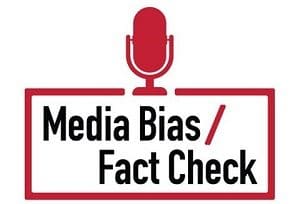
PRO-SCIENCE
These sources consist of legitimate science or are evidence based through the use of credible scientific sourcing. Legitimate science follows the scientific method, is unbiased, and does not use emotional words. These sources also respect the consensus of experts in the given scientific field and strive to publish peer-reviewed science. Some sources in this category may have a slight political bias but adhere to scientific principles. See all Pro-Science sources.
- Overall, we rate MDPI Pro-Science and Mostly Factual for reporting due to a few failed fact checks, numerous retractions, and being named a predatory publisher. However, based on the volume of studies published across their 400+ journal, most information is factual.
Detailed Report
Bias Rating: PRO-SCIENCE
Factual Reporting: MOSTLY FACTUAL
Country: Switzerland
MBFC’s Country Freedom Rating: EXCELLENT
Media Type: Journals
Traffic/Popularity: High Traffic
MBFC Credibility Rating: MEDIUM CREDIBILITY
History
Founded in 1996, MDPI (Multidisciplinary Digital Publishing Institute), formerly Molecular Diversity Preservation International is an open-access journal publisher based in Basel, Switzerland. Its founder is Dr. Shu-Kun Lin, who graduated from Wuhan University, majoring in inorganic chemistry, and has a doctorate in organic chemistry from the Swiss Federal Institute of Technology (ETH-Zürich).
Read our profile on Swiss Media and Government.
Funded by / Ownership
The publisher of MDPI and its operating company for the journals MDPI AG is Shu-Kun Lin. Here is the list of the Management Team. According to “MDPI Open Access Information and Policy.” MDPI articles and all its journals are open access where authors pay a one-time Article Processing Charge (APC) to cover the costs of peer review administration and management; here is “General Information on MDPI’s Article Processing Charges (APC).”
Analysis / Bias
In review, The reputation of the MDPI has been criticized over the years. For example, in 2012, Erik Andrulis published a paper in a new journal called Life (MDPI). The credible pro-science magazine science.org published a critical review of how the paper passed peer review. They state, “I know what I would have said if they’d sent the paper to me: that it was a perfect example of what happens when an active, learned mind begins to slip loose from its moorings, and that while the paper appeared to have no scientific merit at all, it was quite useful as a diagnostic sign of oncoming psychosis.”
In 2018, editors of the journal Nutrients resigned en masse, claiming that allegedly MDPI pressured them “to publish mediocre papers.” Nutrients is an open-access journal of human clinical nutrition published by MDPI.
MDPI was on a list of predatory publishers maintained by Jeffrey Beall, a librarian at the University of Colorado in Boulder, until its appeal. However, according to the journal Research Evaluation, they are and continue to be a Predatory Journal. In short, Predatory Open Access publishing is an exploitative open-access publishing business model that involves charging publication fees to authors without providing the editorial and publishing services associated with legitimate journals. In most cases, peer review is minimal, and studies are published simply because they are paid for.
An example of poor peer review can be found when the MDPI journal accepted a paper titled “The Safety of COVID-19 Vaccinations—We Should Rethink the Policy” later, MDPI retracted the article. The study also caught the attention of fact-checkers who rendered it a Flawed Study (see below). In addition, according to Retraction Watch, MDPI has retracted dozens of studies over the years.
Another criticism about MDPI is having its headquarters in Switzerland only to cover publishing activities in Asia. Therefore the quality of some published journals and the review process have also been called into question.
Finally, as evidenced by the below fact checks, MDPI has promoted Covid-19 misinformation in their journals. While they may be mostly pro-science and publish many valid studies, they also occasionally promote pseudoscience and misleading flawed studies. However, if you consider they publish over 400 journals, it indicates they are usually accurate.
Failed Fact Checks
- “The Safety of Covid-19 vaccinations — we should rethink the policy.” – Flawed Study
- “For three deaths prevented by vaccination we have to accept two inflicted by vaccination.” – Unsupported
- Vaccine spike proteins enter cell nuclei and wreak havoc on cells’ DNA repair mechanism, suppressing DNA repair by as much as 90%. – Flawed Study
Overall, we rate MDPI Pro-Science and Mostly Factual for reporting due to a few failed fact checks, numerous retractions, and being named a predatory publisher. However, based on the volume of studies published across their 400+ journal, most information is factual. (M. Huitsing 09/29/2022)
Source: https://www.mdpi.com/
Last Updated on June 5, 2023 by Media Bias Fact Check
Do you appreciate our work? Please consider one of the following ways to sustain us.
or
Left vs. Right Bias: How we rate the bias of media sources

